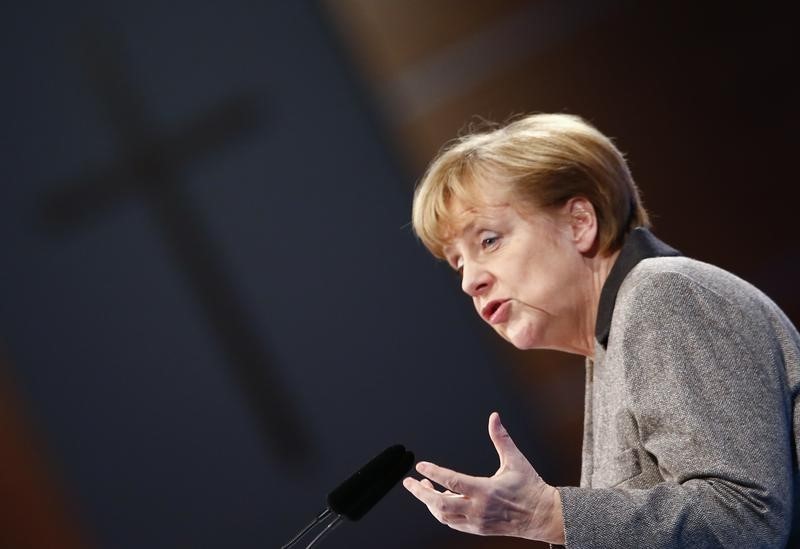BERLIN (Reuters) - German Chancellor Angela Merkel backed Bulgaria on Monday in its bid to seek new talks with Russia about the South Stream gas pipeline after Moscow shelved the project this month in favour of an alternative link via Turkey.
The EU, at odds with Moscow over the Ukraine crisis and keen to reduce its energy reliance on Russia, had raised objections to the $40 billion South Stream pipeline, which was to run under the Black Sea and enter the EU via Bulgaria.
Critics of the plan said they believed it breached EU law, but some EU member states saw the pipeline, which would bypass Ukraine, as the best way to secure their own gas supplies and economic interests and still hope it can be revived.
"We need to examine all legal questions surrounding the South Stream project and then use these to move discussions forward with Russia," Merkel said after talks with Bulgarian Prime Minister Boiko Borisov in Berlin.
Numerous contracts have already been agreed and it is important for both sides to remain reliable partners, she added.
Borisov said after meeting Merkel he was convinced that the problems could be resolved and he hoped to receive clarification from Brussels on its views about the pipeline.
"We think the Russian and Bulgarian partners must continue on a legal basis, otherwise we would violate the contract, which was signed with Bulgaria rather than with the EU as a partner in 2006," he said.
Russian President Vladimir Putin surprised Europe with his announcement during a visit to Turkey on Dec. 1 that Moscow was scrapping South Stream, citing the EU objections as the reason.
Putin accused the EU of denying Bulgaria, heavily dependent on Russian gas, its sovereign rights and said that blocking the project "is against Europe's economic interests and is causing damage".
Other countries which stood to gain from South Stream, including Serbia and Hungary, also want to rescue the project.
Putin said Russia could instead build a gas hub at the border between Turkey and Greece to pump gas to southern Europe.
The South Stream project was meant to supply 63 billion cubic metres of gas a year to Europe.
Putin's decision to shelve South Stream and to court non-EU member Turkey comes after Western countries slapped economic sanctions on Russia over its actions in Ukraine.

Russia still supplies about 30 percent of EU gas needs, half of that via Ukrainian territory.
(Reporting by Andreas Rinke, writing by Alexandra Hudson; Editing by Gareth Jones)